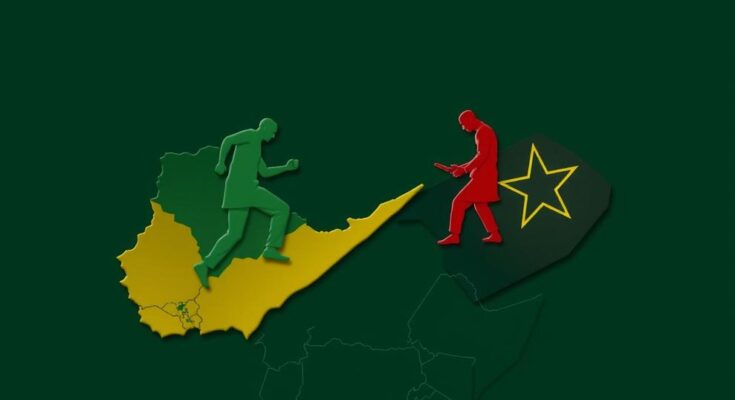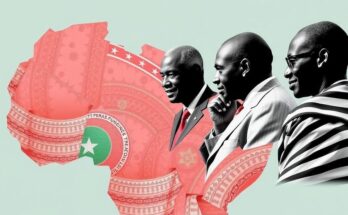An alliance among Egypt, Eritrea, and Somalia is forming to counterbalance Ethiopia amid rising tensions led by Prime Minister Abiy Ahmed. The coalition seeks to bolster security and combat terrorism in Somalia while potentially intensifying conflicts due to Egypt’s military support and the historical disputes involving resources and territorial claims. This development brings to light the intricate geopolitical landscape of the Horn of Africa, characterized by shifting allegiances and ongoing conflicts.
Recent developments have led to a concerning coalition forming among Egypt, Eritrea, and Somalia, designed to stand against Ethiopia amid perceived provocations by Prime Minister Abiy Ahmed. The alliance was formalized during a meeting in Asmara, where President Isaias Afwerki of Eritrea welcomed Egyptian President Abdel Fattah al-Sisi and Somali President Hassan Sheikh Mohamud. They agreed upon a security partnership aimed at strengthening Somali institutions to counter both internal and external threats, including terrorism, and enhancing the Somali National Armed Forces’ capabilities. This alliance comes on the heels of Egypt’s military support to Somalia and a request from Mogadishu for the African Union to replace Ethiopian troops with Egyptian personnel for peacekeeping efforts. Tensions have been further exacerbated by Ethiopia’s recent agreement to lease coastal access from Somaliland for recognition of its autonomy. Historically, Ethiopia has sought to regain access to the Red Sea, creating friction with Egypt, which is embroiled in a long-standing dispute over the Grand Ethiopian Renaissance Dam that Ethiopia has constructed on the Nile River. This has raised alarms there regarding potential water security threats. The context is further complicated by the ongoing civil war in Sudan, where Egypt, Eritrea, and Somalia have aligned with Turkey and Saudi Arabia in support of the Sudanese Army, contrasting with Ethiopia’s alliance with the UAE. There are fears among observers that this new coalition could reignite historical hostilities between Ethiopia and Eritrea, as both nations were engaged in violent conflict until a peace agreement was reached in 2022. Eritrea remains fixated on undermining the Tigray People’s Liberation Front (TPLF), further blurring the lines of conflict in the region. Concerns are mounting that Somalia’s president may inadvertently invite external proxies, destabilizing his nation’s fragile federal structure as it grapples with the pervasive threat of the militant group al-Shabab. As Egypt’s closer ties to Somalia emerge, there is an apprehension that this could bolster al-Shabab’s resistance against the federal government, with complex ramifications for regional stability, particularly considering the historical backdrop of Ethiopian interventions in Somali clan dynamics. The volatile situation calls for careful monitoring as the Horn of Africa continues to navigate a treacherous political landscape.
The political dynamics in the Horn of Africa have been historically complex, with countries often engaging in strategic alliances that influence security and stability in the region. Ethiopia, a landlocked nation, has pursued maritime access extensively due to geographical constraints, leading to tensions with its neighbors. Egypt, historically wary of Ethiopia’s influence, particularly regarding the Nile River, has sought to forge alliances to offset Ethiopia’s ambitions. In this context, the recent meetings between Egypt, Eritrea, and Somalia represent a strategic pivot wherein these nations collaborate to confront perceived Ethiopian aggressions while contending with internal security challenges, particularly in Somalia where al-Shabab remains a potent threat.
The emergence of an alliance between Egypt, Eritrea, and Somalia poses significant implications for regional stability in the Horn of Africa. As these nations band together against Ethiopia, concerns about rekindled conflict and the potential strengthening of militant groups like al-Shabab are rife. The delicate balance of power remains in a fragile state, necessitating vigilant observation of developments and strategic engagements among these nations, especially concerning Ethiopia’s historical role in the region.
Original Source: foreignpolicy.com




